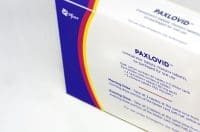To: Ethics inbox
From: Puzzled nursing instructor
Subject: “Putting away” your moral beliefs?
Recently, a nursing student wrote this as part of a course assignment: “Ethics can be hard to teach or learn because they may be different for everyone. Ethics are part of your moral beliefs or values. It can be hard to put away your moral beliefs for patients of certain backgrounds or cultures and focus on what they need or are asking of you.” I am concerned that this student is misguided. How should I respond?
From: ANA Center for Ethics and Human Rights
You are correct to question this student’s response. A relativistic or situational view of ethics—where the right-ness or wrong-ness of an ethical decision is in the “eye of the beholder”—is a recognized ethical perspective. Because nursing is a profession and the student is learning to be part of this profession, taking the time to specifically respond to the student could be a teachable moment. You could say to the student, “Yes, you can person-ally hold a view that moral beliefs can be highly in-dividualized, and that a person should ‘put them away’ when interacting with other humans. However, as a professional nurse, you will also want to seek guidance from the Code of Ethics for Nurses with In-terpretive Statements because the Code is designed to provide normative, applied moral guidance for nurses in terms of what they ought to do, be, and seek.”
According to the Code, when nurses care for those whose health condition, attributes, lifestyle, or situations are stigmatized, or when they encounter a conflict with their own personal beliefs, nurses must render compassionate, respectful, and competent care. Nurses do have their own personal beliefs and are not expected to push them away—but instead to recognize them and proceed to provide care according to the ethical standards of the profession.
You also could share that the Code explains that nurses have both personal and professional identities that are integrated and embrace the values of the profession, merging them with personal values. In emerging work by Hite and Godfrey with edu-cation, practice, and regulation, the four domains of professional identity in nursing are understood to be values and ethics, knowledge, leadership, and professional comportment. These sign-posts can help nurses and the public understand what professional identity in nursing means.
Having a moral compass is important and shouldn’t be reduced or ignored. Equip-ping students with a clearer understanding of how personal and professional identities develop and mani-fest themselves in nursing practice helps all nurses treat every person with compassion and respect.
— Response by Nelda Godfrey, PhD, RN, ACNS-BC, FAAN, member of ANA’s Center for Ethics and Human Rights Advisory Board, with special acknowledgment to Sarah Kroeker, MSN, RN, clinical instructor, Salina Campus, University of Kansas School of Nursing.
Reference
Hite A, Godfrey N. Professional identity in nursing: Why does it matter? Kansas Nurse. 2019;94(3):14-16.
Do you have a question for the Ethics Inbox? Submit at ethics@ana.org.


















